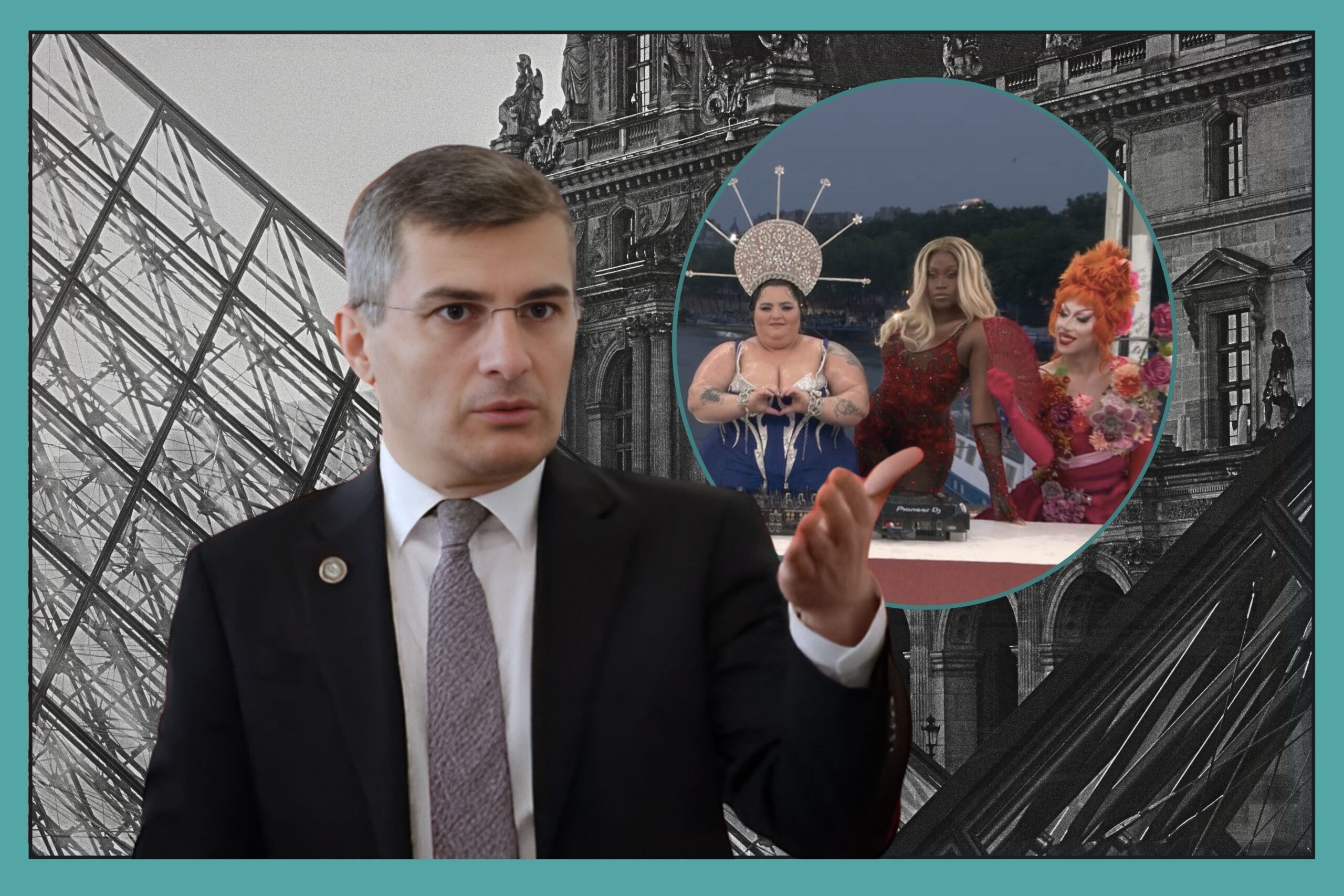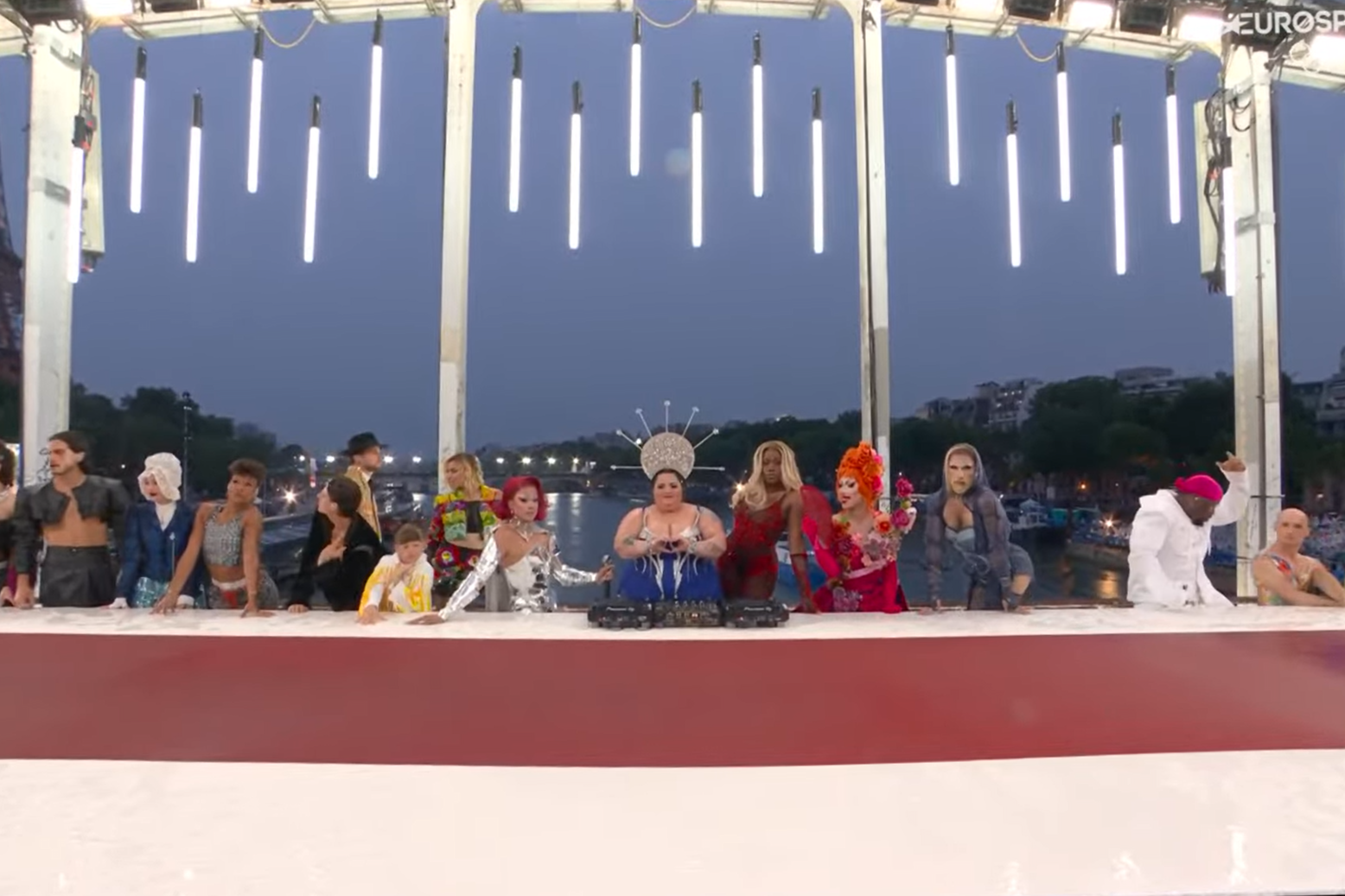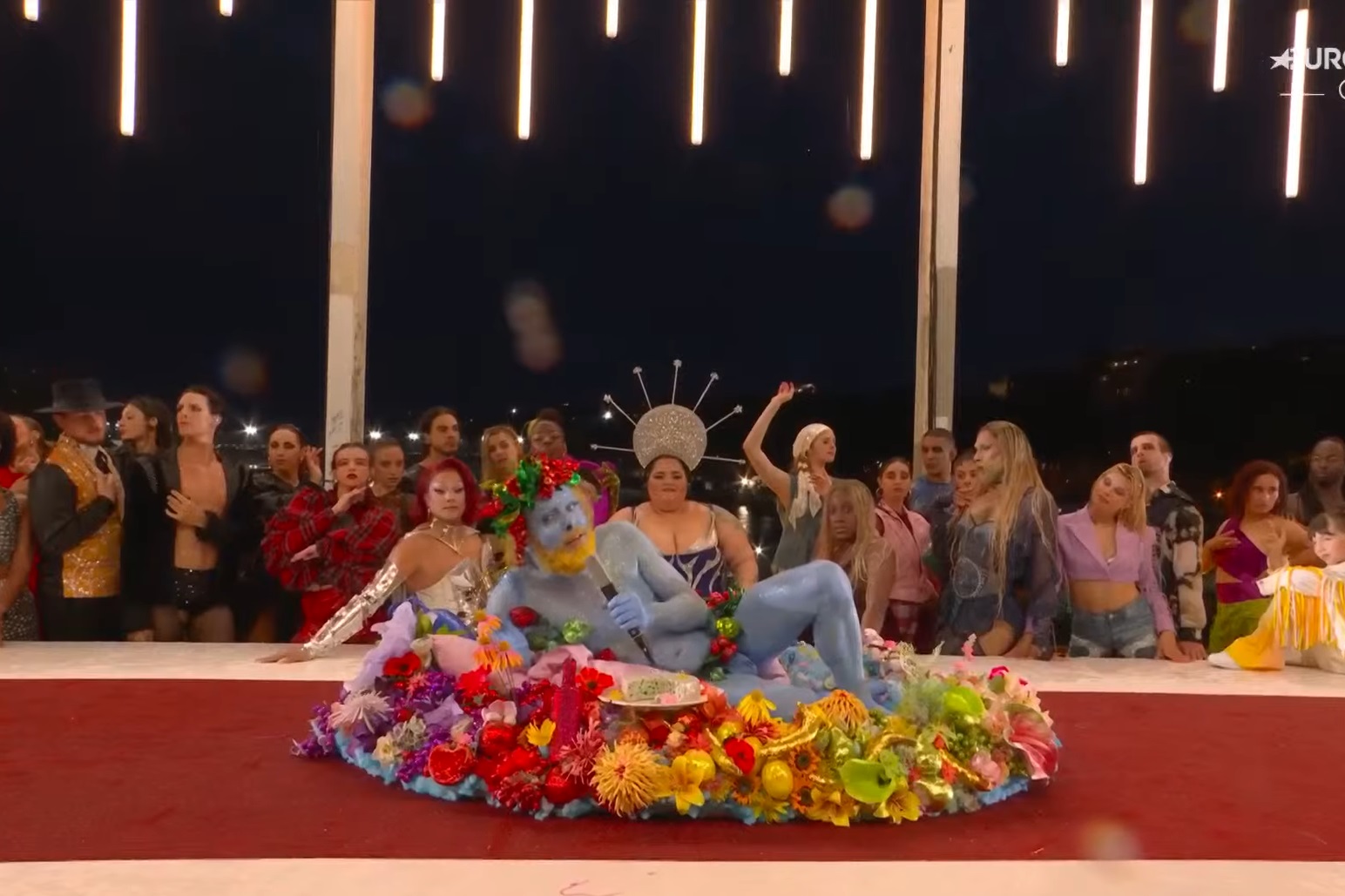
The opening ceremony of the Paris Olympics was condemned by the parliamentary leader of Georgia’s ruling party, as well as religious figures and the party’s supporters, suggesting that it illustrated the need for a proposed law banning queer propaganda.
Friday’s event was centred on the River Seine, and included performances by pop musicians, dancers, and drag performers.
In one performance, DJ and producer Barbara Butch wore a silver halo-like headpiece as she hosted a party on a pedestrian bridge over the Seine. Drag performers flanked Butch on either side, in a configuration that some took to be a reference to Leonardo Da Vinci’s painting of The Last Supper.
France’s Catholic church condemned the ‘scenes of derision and mockery of Christianity’, with conservative and religious organisations raising similar objections globally.

On Saturday evening, Georgia’s parliamentary majority leader Mamuka Mdinaradze suggested that the event made clear the justification for the ruling party’s proposed ban on ‘queer propaganda’.
‘Pseudo–liberals closely followed the opening of the Olympics and still consider it relevant to ask: where did Georgian Dream get this law banning LGBT propaganda?! Is this a relevant topic and a problem today?!’, wrote Mdinaradze.
Last month the ruling party’s bill on ‘LGBT Propaganda’ passed its first reading in parliament.
[Read more: Explainer | What’s in Georgia’s new anti-queer bill?]
The package is focused on banning same–sex marriage, which is already prohibited, legally barring queer people from adopting children, banning gender-affirming medical treatment, banning legal gender recognition, and banning ‘queer propaganda’ in media, in educational institutions, and at public gatherings, protests, and workplaces.
Georgian Dream’s main argument for the bill has been their alleged desire to protect Georgians, especially minors, from what they describe as ‘propaganda of pseudo-liberal values’ in Western democracies, which the ruling party has in recent years portrayed as a threat to Georgian identity and traditions.
Government supporters made similar criticisms, including filmmaker and prominent Georgian Dream supporter Goga Khaindrava.
‘The “Satanic ball” held in Paris reveals who [and] what power is ruling the so-called Euro-Atlantic space today! This is the Sabbath of evil souls!’ he wrote on Saturday, adding that the opposition parties signatory to President Salome Zourabichvili’s Georgian Charter ‘are on the road to hell!’.
A day later, he wrote that ‘we must consider the Paris sodom bacchanalia a public declaration of the servants of Lucifer about world domination!’, adding that those who had signed the charter were ‘preachers of this global depravity’.
The opening ceremony of the Olympics was also criticised by the newly founded United Neutral Georgia movement, which was founded by supporters of the ruling party.
‘The so-called “performance” was saturated with insults to the Christian faith, ridicule and mockery of holy dogmas of Christians. The show was dominated by LGBT themes, and it was unsurprising that the church and faith were mocked by people of non-traditional orientation’, they wrote.
‘Certain forces in America, which fully control the European Union, are still concerned about the power of Christian values and aim to destroy those values completely. […] The goal is, along with LGBT propaganda, uncontrolled migration, as we see that the Christian population in major European cities is gradually becoming a minority.’
‘It is necessary to have an active discussion, to what extent it is in the national interest of Georgia to join such a union, where the church is declared as an image of the enemy, where national identity is not considered a pride, but a problem’, they wrote.
‘What good will it do for a country to join the European Union, where a key issue for membership is how much your government is controlled by outside forces and how it promotes the spread of LGBT propaganda in the country’.
Georgia’s ruling party has frequently appeared to advance its rhetoric through satellite groups and pro-government media before it is taken up by the party’s ruling figures.
The leader of the Church of the Transfiguration, Shalva Kekelia, called the opening ceremony of the Paris Olympics an ‘insult and violation of religious feelings’.
‘Christianity is being caricatured to the end, they tell us that even you Christians are nonentity’, he said.
‘If you treat a Muslim like this, they will run you over […]; If you say something about a Jewish [person], [they will say that] you are anti-Semitic. But if they say such things about a Christian, there is no problem’, said Kekelia.
Differing interpretations
Interpretations of the scene have varied, with media, observers, and the event’s organisers suggesting that singer Philippe Katerine, who wore a crown of flowers at the centre of the scene, was representing Dionysus, the Greek god of wine and ecstasy.

The show’s artistic director, Thomas Jolly, said staging ‘The Last Supper’ wasn’t his intention.
‘I didn’t intend to be subversive, or to mock, or shock’, he said at a press conference on Sunday. ‘We wanted to talk about diversity. Diversity means being together. We wanted to include everyone, as simple as that’.
Speaking on BFM TV, Jolly added that the Last Supper was not his inspiration for the scene.
‘The idea was to have a pagan celebration’, said Jolly. ‘There is Dionysus who arrives on this table. He is there because he is the God of celebration in Greek mythology, the god of wine’.
‘You will never find in me a desire to mock or denigrate anyone. I wanted to make a ceremony that repairs, that reconciles’, he said.
According to NBC News on Sunday singer Philippe Katerine told Le Parisien newspaper, that he is ‘proud’ of the performance.
‘It’s my culture’, he said. ‘We’re full of different people and everyone lives their own way and, above all, has the right to do so. I loved doing it’.
On Sunday, Paris Olympics spokesperson Anne Descamps told a press conference that ‘there was never an intention to show disrespect to any religious group. [The opening ceremony] tried to celebrate community tolerance. We believe this ambition was achieved. If people have taken any offence we are of course really sorry.’









